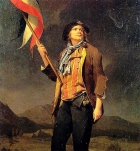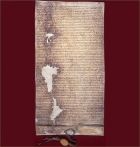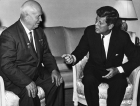KS3 planning (general)
There are many different issues, both practical and pedagogical, subject specific, school-wide and national that must be considered in any teachers’ planning. In this section you will find research, articles, guides and resources that will support you to develop your planning as it relates to teaching history and helping pupils to make progress.
Sort by:
Date (Newest first) | Title A-Z
Show:
All |
Articles |
Podcasts |
Multipage Articles
-

Communicating about the past: Resource B
ArticleClick to view -

Communicating about the past: Resource C
ArticleClick to view -

Communicating about the past: Resource E
ArticleClick to view -

Communicating about the past: Resource F
ArticleClick to view -

Communicating about the past: Resource G
ArticleClick to view -

Continuity in the treatment of mental health through time
ArticleClick to view -

Counterfactual Reasoning: Comparing British and French History
ArticleClick to view -

Creating a progression model for teaching historical perspectives in Key Stage 3
ArticleClick to view -

Cunning Plan 142: Why do historical interpretations change over time?
ArticleClick to view -

Cunning Plan 144: promoting independent student enquiry
ArticleClick to view -

Cunning Plan 149.1: a Year 7 lesson on Gladiators
ArticleClick to view -

Cunning Plan 151: When and for whom has 1688 been 'Glorious'?
ArticleClick to view -

Cunning Plan 152.2: using Gillray’s cartoons with Year 8
ArticleClick to view -

Cunning Plan 154: Who is buried in the box?
ArticleClick to view -

Cunning Plan 155: interpreting WW1 events
ArticleClick to view -

Cunning Plan 159: Putting the people into Magna Carta
ArticleClick to view -

Cunning Plan 159: Was King John unlucky with his Barons?
ArticleClick to view -

Cunning Plan 161: Magna Carta's legacy
ArticleClick to view -

Cunning Plan 162: Transferring knowledge from Key Stage 3 to 4
ArticleClick to view -

Cunning Plan 166: developing an enquiry on the First Crusade
ArticleClick to view

